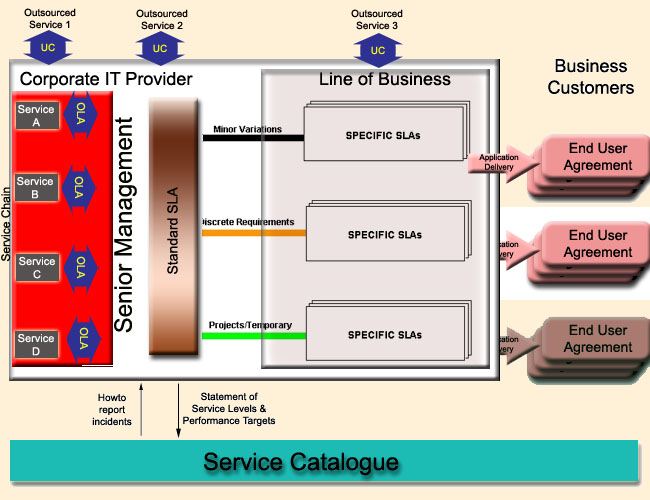
29sixservices
Add a reviewOverview
-
Sectors Graphic Design
-
Posted Jobs 0
-
Viewed 42
Company Description
Understanding Legal and Compliance Aspects in Your Outsourcing Journey
This article is a submission by Managed Services Partners. Managed Services Partners is an outsourcing firm with over 6 years of experience assisting companies enhance operations and drive development.
Embarking on the outsourcing journey is an endeavor that numerous businesses undertake to enhance effectiveness, reduce expenses, and utilize specialized talent.

However, along with these possible benefits come a host of legal and compliance complexities that need to be thoroughly navigated to guarantee the success and sustainability of contracting out initiatives.
This detailed guide will check out key legal and compliance considerations, with a focus on data privacy laws, non-disclosure agreements (NDAs), non-compete clauses, and the important function of adaptability in today’s vibrant organization environment.
The outsourcing landscape
Outsourcing is more than a technique for offloading non-core jobs; it is a transformative method that can improve a business’s flexibility and competitiveness.
Whether it’s IT services, client assistance, manufacturing procedures, or personnels, outsourcing can offer a considerable edge. Companies that effectively contract out can concentrate on core organization operations, drive innovation, and gain access to top talent without the overhead costs of full-time work.
However, this journey is not without its legal and compliance difficulties. Companies must be conscious of the complexities surrounding the transfer and management of information, the protection of intellectual residential or commercial property (IP), and the maintenance of regulative compliance.
Given the international nature of outsourcing, organizations should likewise think about cross-border legal implications, which might vary considerably depending on the country where the outsourcing provider operates.
Understanding these aspects is necessary in making sure that outsourcing partnerships align with a business’s strategic goals while alleviating prospective legal threats.
Oftentimes, businesses that overlook legal and compliance factors to consider deal with expensive disputes, loss of sensitive data, or reputational damage that can take years to recover from.
Importance of legal considerations
Outsourcing naturally includes legal considerations that are important to securing a business’s interests. At the leading edge is the requirement to protect sensitive information. Companies must comprehend and adhere to information personal privacy laws that govern the jurisdictions in which they run.
This is specifically important as data breaches can result in serious punitive damages and reputational damage.
Furthermore, copyright rights need to be clearly specified in outsourcing agreements to prevent unauthorized usage or misappropriation of proprietary assets. If these rights are not properly established, a company might lose control over vital innovations or personal organization procedures.
For services operating in highly regulated industries such as healthcare, finance, or legal services, compliance requirements are a lot more strict.
Following policies such as the General Data Protection Regulation (GDPR) in Europe or the Health Insurance Portability and Accountability Act (HIPAA) in the United States is necessary to avoiding legal problems.
Non-Disclosure Agreements (NDAs) and non-compete clauses

When outsourcing, business frequently share exclusive details with external service providers.

To safeguard this valuable details, NDAs are utilized. These contracts are developed to avoid the unapproved dissemination of secret information, thus protecting the company’s competitive benefit.
NDAs should be detailed and legally binding, plainly describing what constitutes private information and the obligations of both celebrations in managing sensitive information. Businesses need to likewise ensure that their NDAs include arrangements for legal recourse in case of breaches.
Similarly, non-compete provisions can be consisted of to prevent company from exploiting sensitive understanding acquired throughout the contracting out collaboration to benefit a competitor. This is specifically important when outsourcing freelancers or firms that might have multiple customers in the same industry.
However, the enforceability of non-compete provisions can differ significantly depending on the jurisdiction. Some regions have stringent regulations limiting the scope and duration of such stipulations.
Therefore, it’s essential for business to seek advice from legal specialists with experience in the pertinent legal frameworks to agreements.
Contracts: Setting the structure
Contracts act as the blueprint for the contracting out collaboration, specifying functions, obligations, deliverables, and timelines. They likewise outline the legal and compliance expectations for both celebrations.
A well-structured contract should resolve a number of key aspects:
Scope of work: Clear and comprehensive descriptions of the services to be offered, including quality standards and efficiency metrics.
Data security: Specific stipulations connected to data protection, data transfer treatments, and breach notification procedures to ensure adherence to privacy laws.
Intellectual Property rights: Provisions that establish ownership of IP created throughout the partnership, and terms that safeguard pre-existing IP.
Termination clauses: Terms that resolve the possible end of the outsourcing relationship, including notification periods and conditions under which termination can happen without penalty.
Additionally, services should think about carrying out service-level arrangements (SLAs) to guarantee responsibility and efficiency tracking. SLAs specify measurable benchmarks that the outsourcing provider need to fulfill, offering companies with option if expectations are not satisfied.
Engaging with provider
Consulting with potential company throughout the early phases of the outsourcing journey is a strategic move. This engagement allows business to evaluate the company’s capability to meet legal and compliance requirements.
Thorough vetting procedures, such as asking for references, reviewing previous tasks, and examining compliance certifications, can supply valuable insights into the supplier’s dependability and adherence to market standards.
Businesses should likewise assess the monetary stability of possible outsourcing partners.
A company that faces financial challenges might not be able to maintain operations long-lasting, positioning a threat to continuous tasks. Conducting due diligence in advance can avoid future disruptions.
The function of versatility in legal and compliance techniques
Adaptability is an important component of successful outsourcing, especially when it pertains to navigating developing legal landscapes. Regulations and market conditions can change quickly, making it necessary for companies to stay nimble.
Building versatility into contracts and developing processes for ongoing compliance tracking can help companies adapt to new legal requirements and keep an one-upmanship.

For instance, if a business is outsourcing customer assistance operations to several countries, they should guarantee compliance with various national laws regarding customer security and data personal privacy.
Regularly upgrading policies and contracts in action to legal changes can avoid legal risks.
Real-world factors to consider and finest practices
To make sure legal and compliance success in outsourcing, organizations ought to embrace the following finest practices:
Regular audits and assessments
Conduct periodic audits and evaluations to guarantee that service companies remain compliant with legal and regulatory requirements. This proactive technique can assist recognize potential gaps before they escalate into significant problems.
Training and awareness
Educate staff members and outsourced groups on information security practices and legal obligations. This guarantees that everyone included in the contracting out journey understands the significance of compliance and the function they play in safeguarding information.
Collaboration and communication

Foster a collective relationship with provider. Open lines of interaction can help resolve compliance issues quickly and assist in joint problem-solving efforts.
Crisis management preparation
Have contingency strategies in place in case of security breaches, contract conflicts, or company failures. A well-structured crisis management strategy ensures that services can quickly respond to obstacles without significant disturbances.
Legal compliance for contracting out success

Understanding the legal and compliance elements of outsourcing is vital for companies seeking to leverage external abilities while securing their interests. By focusing on essential locations such as data personal privacy, NDAs, non-compete stipulations, intellectual home rights, and flexibility, companies can effectively browse the outsourcing landscape.
Successful contracting out hinges on a collective method between the business and its company. Building trust and preserving transparent communication can lead to reliable analytical and a shared dedication to compliance.

